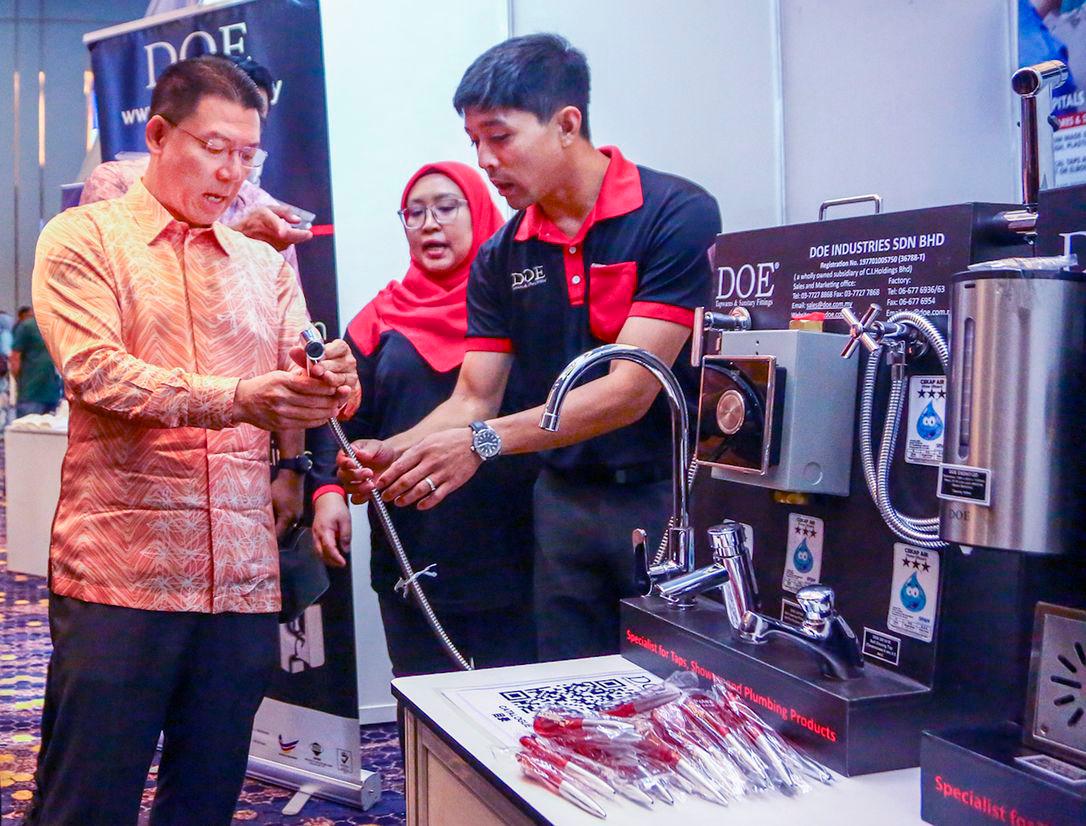PETALING JAYA: Three new hygiene policies will come into force on Jan 1, 2026, as part of the Housing and Local Government Ministry’s effort to strengthen public cleanliness and instil a first-class mindset among Malaysians.
Its minister Nga Kor Ming said the first policy will require all toilets under 20 city councils, including those in food and beverage outlets, to comply with Clean, Attractive, Fragrant standards.
He added that business licences will not be renewed for operators who fail to meet these requirements.
“A three-year notice was issued in 2023 to allow operators sufficient time to upgrade their facilities, as toilet cleanliness is now a mandatory requirement,” Nga told reporters after officiating at the World Environmental Health Day 2025 event yesterday.
“Now, in October, I am issuing another three-month notice so that by Visit Malaysia Year 2026, we could enhance our national image and reputation. We expect 40 million international tourists, making Malaysia one of the most popular destinations in Asia.”
The second policy targets littering offences. Nga said individuals caught littering will face a fine of up to RM2,000 under court jurisdiction or be ordered to perform 12 hours of community service, such as sweeping streets, cleaning drains or public toilets.
He said the measures are part of the ministry’s wider effort to cultivate civic responsibility and ensure hygiene standards match Malaysia’s progress towards becoming a high-income nation by 2030.
The third policy, he said, involves the Medan Selera Madani initiative, aimed at upgrading and standardising food court hygiene nationwide to provide cleaner, safer and more comfortable dining environments for the public.
Nga said the initiative has shown encouraging results, and while there are still areas for improvement, the government remains committed to upgrading basic public facilities.
“In line with this, the ministry has proposed 13 initiatives under Budget 2026, including a RM1 billion allocation to implement 10,000 public facility projects for Visit Malaysia Year 2026.
“This builds on last year’s record achievement of 6,611 completed public facility projects, the highest in history.”
He added that the ministry would continue to strengthen six national-level environmental health campaigns this year, supported by an RM860,000 allocation to promote hygiene awareness and a culture of cleanliness across local authorities.
The campaigns include:
- Clean Food Premises Campaign;
- Clean Public Market Campaign;
- Clean Public Toilets (BMW) Campaign;
- Rat Infestation Eradication Campaign;
- Dengue Prevention Campaign; and
- Stray Animal Management Campaign.
Nga said World Environmental Health Day, celebrated globally on Sept 26, plays a crucial role in reinforcing cooperation among agencies.
“This celebration is not merely symbolic but also an important national agenda to strengthen collaboration between federal, state and local authorities.”
The theme chosen by the ministry for this year’s celebration, ‘Healthy Environment, Harmonious Society, Madani Nation’, aligns with the Malaysia Madani vision and the nation’s development goals.
“The theme is timely and relevant, as we must prioritise a clean and healthy environment at every stage of progress, especially as we approach Visit Malaysia Year 2026.
“Environmental cleanliness is a key criterion for Malaysia to become a developed nation. To achieve this, we need not only first-class infrastructure but also a first-class mindset.”









